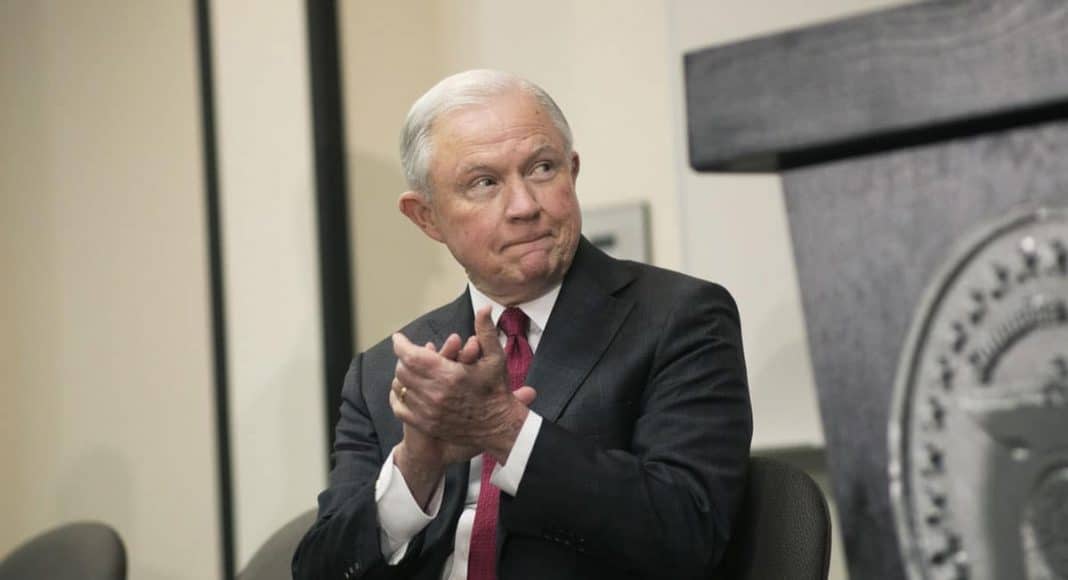Ever since US Attorney General Jeff Sessions announced weeks ago that he was rescinding the temporary protections that allowed legal marijuana states to operate without federal interference, members of the cannabis industry have been waiting for a crackdown.
But the crackdown has not happened in the way that many envisioned. There has been no legion of DEA agents coming into legal states and bringing down the hammer on cultivation centers and dispensaries. The Justice Department’s approach, if it can be labeled as such, is much more subtle.
-
Related Story: Goodbye Cole Memo, Hello Uncertainty For Cannabis
Some might say that Sessions doesn’t have a leg to stand on when it comes to trying to enforce federal marijuana laws. It could also be said that the recindment of the Cole Memo (Obama’s hand’s off approach to legal marijuana) was nothing more than the Trump administration’s way of engaging in psychological warfare with the cannabis trade.
After all, it has been weeks since the memo was tossed and there are still no signs that Sessions is rallying the troops to go after weed. Even Sessions admitted last year that the Justice Department doesn’t have the resources to go launch a full-scale attack on cannabis.
As of right now, aside from the death of the Cole Memo, nothing has changed. Marijuana is still grown and sold for medical and recreational use all over the nation.
Some reports have suggested that in addition to the withdrawal of the Cole Memo, Sessions was also on the verge of eliminating a document from the Financial Crimes Enforcement Network (FinCEN), which was designed to help guide financial institutions on how to work with the marijuana businesses.
Marijuana banking is tricky. While none of the larger banks have wanted anything to do with the cannabis industry – since fraternizing with this businesses sector could lead to prosecution – the FinCEN guide has given local banks and credit unions enough of an illusionary safety net to work with pot sellers without concerns of federal hassles.
Although FinCEN has not been snuffed out, there has been enough negative noise reverberating throughout the cannabis scene that even some of the more liberal banks aren’t taking any risks.
“Some have stopped taking on new accounts. We do know of one institution that was getting ready to launch cannabis banking program that has decided to suspend their launch indefinitely,” CanPay CEO and founder Dustin Eide told CNBC.
But nothing about the industry has changed. The wheels on the legal weed machine continue to turn. It’s almost funny how Sessions, without doing more than getting rid of a memo that was never binding in the first place, has scared the financial community.
“People that are heavily invested in the industry are continuing to move forward,” Eide said. “I think the bigger issue is bringing new institutions into new markets. It is concerning to the point that creates additional uncertainty, but this industry has thrived despite uncertainty.”
Just last week, a group of attorney generals from legal marijuana states across the country sent a letter to Congress asking for legal banking solutions for the cannabis industry. These officials are trying to convince federal lawmakers that “The grey market makes it more difficult to track revenues for taxation purposes, contributes to a public safety threat as cash-intensive businesses are often targets for criminal activity, and prevents proper tracking of large swaths of finances across the nation,” according to the letter.
It could be awhile before Congress is ready to step in to lend assistance to the banking issue. Several attempts have been made and failed miserably over the past few years.
Although a handful of lawmakers are working on temporary budget amendments and other clever ways to beat the cannabis banking snafu, there is really only one way to remedy the problem forever: Legalize marijuana nationwide.


